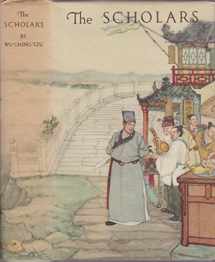
The Scholars Rulin Waishi
Book details
Summary
Description
Wu, Ching-Tzu. The Scholars. Translated by Yang Hsien-yi and Gladys Yang. The author's portrait and illustrations by Cheng Shih-Fa. Third Edition. Peking, Foreign Languages Press, 1973. 22 cm. 8, 607 pages. 21 leaves of plates, dome folded. Illustrations (including colour frontispiece) and portraits in black and white. Original hardcover. Very good condition with only very minor signs of external wear. The Scholars is a Chinese novel authored by Wu Jingzi and completed in 1750 during the Qing Dynasty. Set in the Ming period, the novel describes and often satirizes Chinese scholars in a vernacular Chinese idiom. The first and last chapters portray recluses, but most of the loosely connected stories that form the bulk of the novel are didactic and satiric stories, on the one hand holding up exemplary Confucian behavior, but on the other ridiculing over-ambitious scholars and criticizing the civil service examination system. Promoting naturalistic attitudes over belief in the supernatural, the author rejects the popular belief in retribution: his bad characters suffer no punishment. The characters in these stories are intellectuals, perhaps based on the author's friends and contemporaries. Wu also portrays women sympathetically: the chief character Du treats his wife as a companion instead of as an inferior. Although it is a satiric novel, a major incident in the novel is Du's attempt to renovate his family's ancestral temple, suggesting the author shared with Du a belief in the importance of Confucianism. (Wikipedia)


We would LOVE it if you could help us and other readers by reviewing the book
Book review



